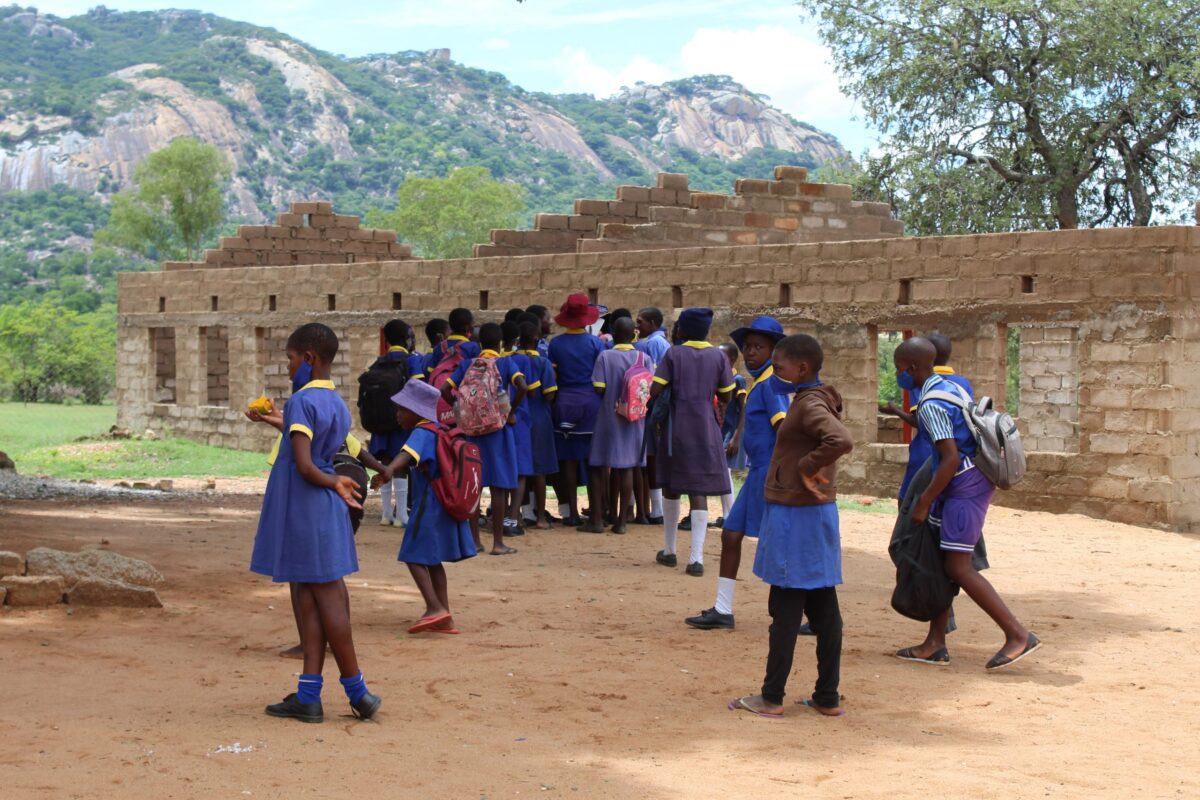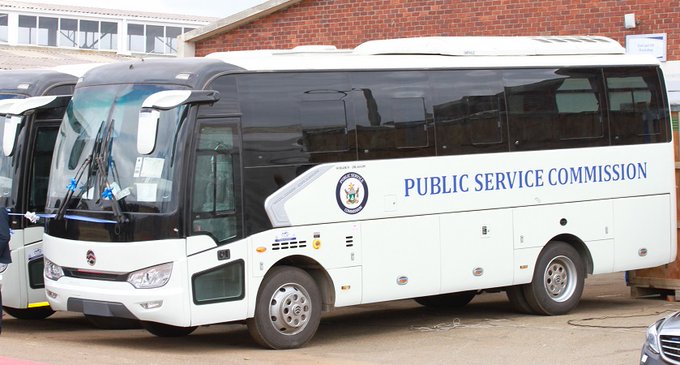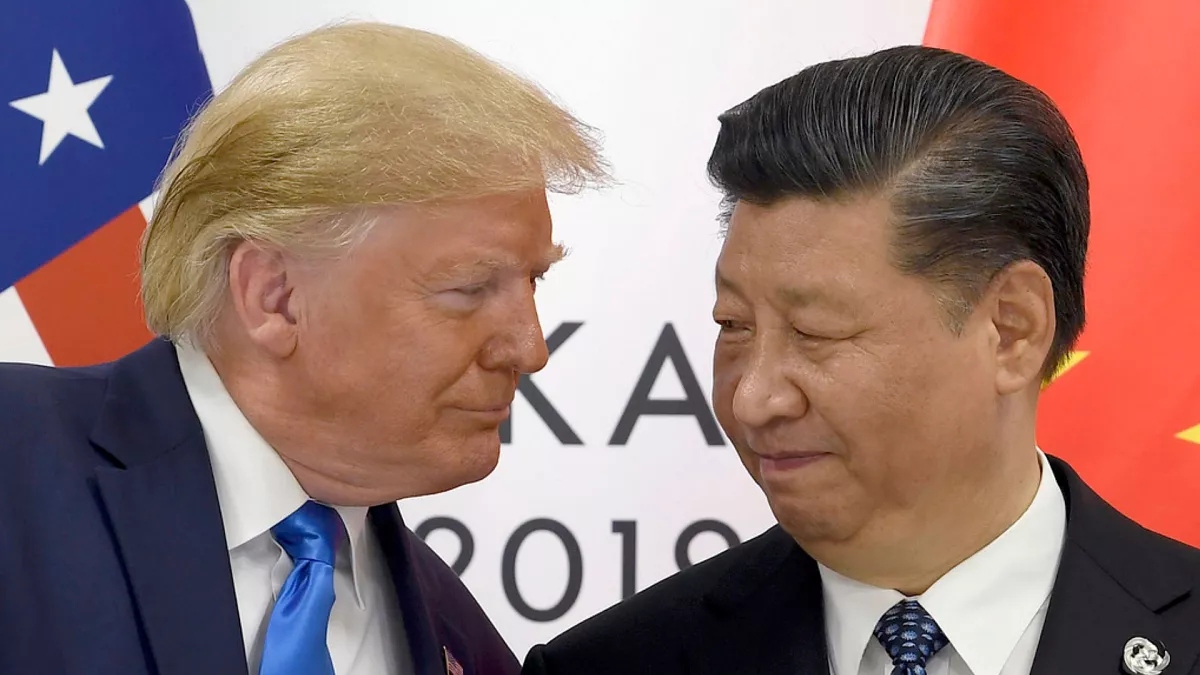HARARE – Zimbabwe’s education system faces a critical juncture, threatening the nation’s long-term development and social fabric.
Despite the critical role education plays in economic development and citizen empowerment, government investment in the sector has fallen below the regional average, with only 13-16 percent of total government expenditure allocated to education in recent years.
Compounding these challenges are the aftermath of the Covid-19 pandemic, El Niño-induced droughts, the marginalisation of People with Disabilities (PWDs), and alarming rates of teenage pregnancies and dropouts.
Unequal opportunities exacerbate challenges
Over 20, 000 girls dropped out of school because of pregnancy between September 2021 and August 2022.
In 2019, the Ministry of Primary and Secondary Education attributed 14.9 percent of all dropouts to pregnancy.
According to a ZIMPULSE report recently published by the Amalgamated Rural Teachers Union of Zimbabwe (ARTUZ) on Universal access to Education covering December 2023 to February this year, 73 percent of sampled schools are not implementing the policy of continuing with education for pregnant girls.
At least 18 percent are implementing the progressive policy and 9 percent are still making progress.
Chronic underfunding of Zimbabwe’s education sector also has had severe consequences including demotivated teachers, brain drain and lack of teaching and learning material.
Finance minister Mthuli Ncube’s recent admission of financial inadequacies to pay fees for over a million disadvantaged children enrolled in the Basic Education Assistance Model (BEAM) paints a grim picture of the sector’s plight.
Ncube’s admission during a recent parliamentary question and answer session comes as a blow to many schools that are facing operational budget shortfalls as a result of the government’s failure to pay fees under the scheme designed to provide all children with access to basic education.
According to Ncube, 1,515,047 children registered for BEAM financial support during the fiscal year 2023.
Government owed schools US$57 million by the end of 2023.
“The government availed ZWL$77.5 billion against a budget of ZWL$23 billion thereby reducing school fees arrears as well as clearing ZIMSEC examination arrears for 2023.
“Notwithstanding the above efforts, resource constraints exacerbated by changes in the macro-economic environment resulted in accumulation of arrears for BEAM which stood at an equivalent of US$57 million (ZiG772 million) by the end of the 2023 financial year,” Ncube added.
For years, the government has been promising free basic education at the primary school level, but has failed to honor this pledge.
A recent UNICEF report announced that over 500,000 prospective learners were out of school with previous studies indicating Mashonaland West bore the brunt of learners out of school.
When asked about the numerous challenges facing the education sector, Ministry of Primary and Secondary Communications Director Taungana Ndoro insisted that government was implementing robust policies to improve educational quality.
“The Ministry of Primary and Secondary Education has some concrete measures that are being implemented through the government such as increasing the budget allocation for education to improve infrastructure, teacher training, and the overall quality of education,” said Ndoro.
“This addresses the shortage of educational resources such as textbooks and learning materials.
“Also efforts have been made to recruit and retain qualified teachers, particularly in rural areas. Incentives such as improved salaries, housing, and training opportunities are also available to attract and retain teachers in underserved areas,” added Ndoro.
Ndoro said plans were also underway to address the marginalization of PWDs and teenage pregnancy dropouts to improve access to inclusive education.
“Government recognizes the importance of inclusive education and is continuously taking steps to address the marginalization of People with Disabilities (PWDs).
“To address the high rates of teenage pregnancies and dropouts, government has enforced the Education Amendment Act of 2020 through implementing awareness campaigns and prevention programmes.
“These initiatives aim to educate pupils, parents, and communities on sexual and reproductive health and rights, as well as the importance of staying in school,” Ndoro said.
While Ndoro’s comments acknowledge the government’s efforts to boost education funding and enhance teacher compensation, the longstanding challenge of bridging the gap between rural and urban learners persists, and further progress is needed to make this goal a reality.
Teachers’ unions call for more action
ARTUZ leader Obert Masaraure, said his union had been at the forefront of analyzing budgetary allocations and exposing the funding gaps in the education sector.
Masaraure however lamented that advocacy efforts to improve the education sector have been met with unresponsive action from within the government.
“ARTUZ has been analysing budgetary allocation towards education exposing the gaps of funding.
“The detailed reports produced by the Union focus on the per capita needs of learners versus allocation. The reports are used to lobby government officials.
“Parliamentarians have been very receptive of our demands and continue to echo our demands during national budget formulation. The Executive has however been less responsive,” he said.
Masaraure said the union was now working on solidifying ties with parents and learners to collectively demand a budgetary allocation which matches the commitment made by our government at Incheon.
Government recently gave teachers an additional US$20 salary increase on top of the regular US$300 and a local currency component of approximately US$100 that civil servants receive.
The meagre compensation attracted a backlash from teachers, who complained that it was “far below our expectation” and a “mockery of the teacher’s dedication to work.”
Zimbabwe Teachers’ Association (ZIMTA), the country’s largest teachers’ union, recently released a statement to the government asking for an entry-level pay of USD$840 for a qualified teacher.
Currently, teachers in Zimbabwe are paid the same wage regardless of their level of education and experience.
In a recent statement, ZIMTA also urged the government to base payments on qualifications, claiming that it is wrong to pay teachers’ the same when they have different qualifications.
Teachers’ unions are currently protesting the government’s failure to hold collective bargaining meetings to discuss increases in teacher wages and allowances.
In Zimbabwe, recognised or certified trade unions, employers, and employer organisations or federations negotiate collective bargaining agreements under the Labour Act [Chapter 28:01].
Govt, UNICEF partnership boosting inclusive education
In a bid to tackle the prevailing challenges in the education sector, the partnership between the government and UNICEF has yielded promising results in enhancing the quality of education across the country.
According to John Mokwetsi, UNICEF’s digital communications officer, various progressive initiatives have been introduced through this collaboration.
“UNICEF has procured and distributed more than four million textbooks to approximately 2000 rural primary, secondary and satellite schools.
“UNICEF has annually disbursed School Improvement Grant to disadvantaged schools with 2,914 schools with 968,514 learners (482,541 girls) benefitting in 2023. For 2024 the schools reached are 2800,” said Mokwetsi.
Moreover, UNICEF’s support has extended beyond textbooks and grants to include the provision of SIG WASH, aiding schools in ensuring access to clean and safe water facilities.
Over 500 schools have received SIG complementary grants to improve infrastructural facilities, such as classroom blocks, science laboratories, and ECD blocks.
UNICEF’s commitment to education inclusivity is also evident in its provision of assistive devices to 77,000 children with disabilities, paving the way for a more supportive learning environment.
These devices cater to various impairments, enabling all students to access inclusive and quality basic education.
Mokwetsi said UNICEF has also provided both financial and technical support to the drafting of the Inclusive Education Policy which is awaiting approval of the cabinet.
Student concerns highlight ongoing challenges in Zim’s education sector
In the face of collaborative efforts between the government and UNICEF aimed at enhancing the quality of education in the country, Emmanuel Sitima, leader of Zinasu, expressed deep concerns over the persistent challenges plaguing the higher and tertiary education sector.
Sitima pointed to a lack of political will on the part of the government to address these issues effectively.
“It’s very sad that we are leading at a time where arrogance and gross incompetence is being rewarded by the sitting regime in Harare,” lamented Sitima.
“All our efforts as student leaders to proffer solutions and ideas to all the challenges affecting the students fraternity are being met with a deafening ear.
“We have petitioned the parliament, we had a multi stakeholder meeting which the parliamentary portfolio committee on higher and tertiary education attended.
“We managed to present our investigative report in that meeting and we believe that report was taken to parliament,” added Sitima.
Sitima emphasized the importance of tailoring the modular learning system to accommodate the diverse needs and requirements of various academic programs.
While acknowledging some positive strides in the education sector, Sitima stressed the necessity for more comprehensive and sustained initiatives to address the fundamental issues of underfunding and inequity within the system.
It is evident that concerted action and unwavering commitment from all relevant stakeholders are imperative to ensure that every citizen in Zimbabwe has access to quality and inclusive education and the chance to realize their full potential.
















